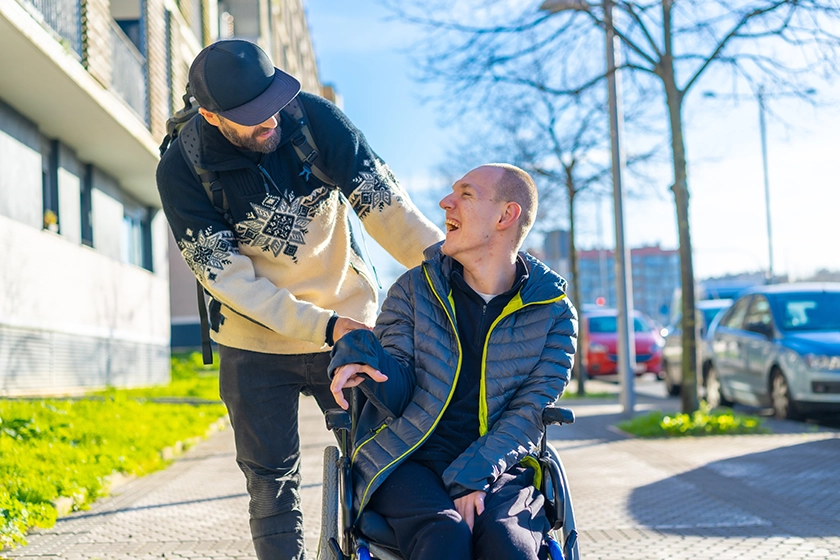Health Equity
The DBHDS Office of Health Equity Advancement (OHEA) leads efforts to provide improved services to diverse and underserved individuals and works toward eliminating the disparities within the state’s mental health, intellectual disability and substance-use disorder system. It aims to provide improved services to all communities in the Commonwealth with a goal of eliminating the disparities in care within the mental health, intellectual disability and substance-use disorder system.
Office of Health Equity Advancement Vision
The DBHDS vision for culturally competent care is:
Care that is given with understanding of and respect for the consumer’s health-related beliefs and cultural values, staff that respect health related beliefs, interpersonal styles, and attitudes and behaviors of the consumers, families, and communities they serve
Administrative, management and clinical operations that include routine assessments and implementation of processes which result in a workforce that is culturally and linguistically competent and a system that provides the highest quality of care to all communities
What we do?
The Office’s consultation efforts are targeted at supporting cultural competence at the organization level. Policy and planning is done to develop cultural competence at the system level. Support for the development of individual cultural competence is provided through training sessions, templates, and information on diverse communities.
Mission: To provide holistic care to refugees who see Virginia as the place of hope and refuge.
Vision: Refugees thrive and their needs are addressed and met through linguistically and culturally appropriate services.
The Virginia Refugee Healing Partnership is focused on addressing refugee risk factors and strengthening mental health partnerships in communities where refugees resettle. The partnership designs and disseminates programs and activities that:
- Promote positive mental health and cultural adjustment in the refugee community Create linkages between provider communities and the refugee communities
- Provide opportunities for trauma-informed education at the community level and culture-informed education at the provider level
Why refugee mental health?
Researchers have shown that the most common mental healthh diagnoses associated with refugee populations include post-traumatic stress disorder (PTSD), major depression, generalized anxiety, panic attacks, and adjustment disorder. The incidence of diagnoses varies within various populations and their experiences.
A range of studies has shown rates of PTSD and major depression in settled refugees to range from 10-40% and 5-15% respectively. Children and adolscents often have higher leels of these disorders with various investigations revealing rates of PTSD from 50-90% and major depression from 6-40%. Risk factors for the developments of mental health problems include the number of traumas, delayed asylum application process, detention, and the loss of culture and support systems. (Refugee Technical Assistance Center: Mental Health; UNHCR, 2014; World Health Organization; Keller, A. and Stweart, A., 2011)
Statewide Resources and Activities
- Partnerships and Collaborations
- Training and Conferences
- Webinar and Teleconference
- Related Resources and Activities
Statewide Refugee Mental Health Councils and Coalitions
- Charlottesville Refugee Mental Health Referral System
- Fredericksburg Refugee Mental Health Council
- Greater Richmond Refugee Mental Health Council
- Hampton Roads Refugee Referral Network
- Harrisonburg Refugee Mental Health Council
- Northern Virginia Coalition for Refugee Wellness
- Roanoke Refugee Mental Health Council
- Statewide Resources and Activities
Virginia Resettlement Agencies
- Catholic Charities Diocese of Arlington
- Arlington
- Manassas
- Fredericksburg
- Church World Service
- Commonwealth Catholic Charities
- Newport News
- Richmond
- Roanoke
- Ethiopian Community Development Council
- International Rescue Committee
- Luthern Social Services of National Capitol Region
Training and Other Resources
- Community Mental Health Awareness Session
- Cultural Navigators Qualification Program
- Mental Health ESL Instructional Material
- Navigating Virginia’s Behavioral Health System: A guidebook for Newcomers, REfugee LEaders, Community Support Partners, and Volunteers
- Qualified Bilingual Staff Training
- Refugee Health Screener (RHS 15)*
- Trauma Informed Cross Cultural Psychoeducation*
AUTHORIZATIONS
Authorization of Use – Disclosure of Health Related Information – Spanish
Complaint Resolution Form – Spanish – Western State Hospital
Uniform Authorization to Use and Exchange Information – Spanish
NOTICES
DBHDS Notice of Advanced Directives (DI202) – Spanish
DBHDS Addendum of Notice of Advance Directives (DI202) – Spanish
DBHDS Notice of Patient Rights – Spanish
WAIVER OPERATIONS
Notice of the Right to Appeal – Spanish






